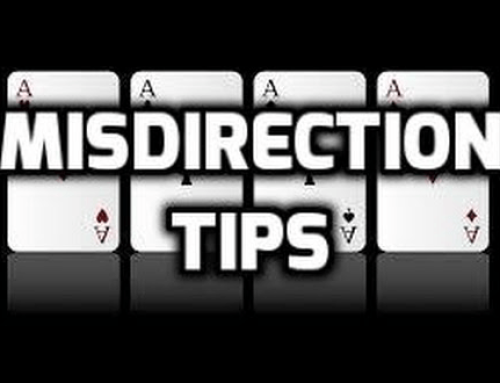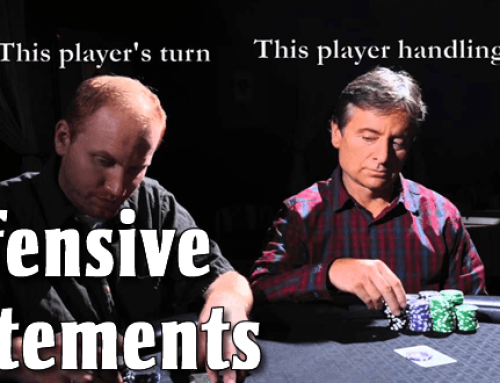Tournament directors play a crucial role in the smooth operation of Texas Hold’em leagues. They are responsible for ensuring that the rules are followed, managing the game’s flow, and resolving any disputes that may arise. Their presence is essential for maintaining order and fairness, making them the backbone of any well-run poker tournament.
The central argument of this discussion is that tournament directors should not participate as players while they are responsible for running the game. This stance is taken to prevent any potential conflicts of interest, maintain the integrity of the game, and ensure that the focus of the tournament director is solely on managing the event rather than on their personal gameplay. By abstaining from playing, tournament directors can dedicate their full attention to overseeing the game and upholding its fairness for all participants.
The Role of the Tournament Director
The responsibilities of a Tournament Director in Texas Hold’em leagues are multifaceted and critical for the smooth and fair conduct of the game. Some of the key duties include:
- Overseeing Game Rules: The tournament director is responsible for ensuring that all players adhere to the official rules of the game. This includes monitoring the gameplay to prevent any rule violations and making sure that the tournament structure, such as blinds and level durations, is followed correctly.
- Ensuring Fair Play: Fair play is paramount in any competitive setting, and the tournament director plays a crucial role in maintaining this. They must vigilantly observe the game to detect any form of cheating or collusion among players. Their presence alone can act as a deterrent to unfair practices.
- Resolving Disputes: In the heat of the game, disagreements and disputes are bound to arise. The tournament director acts as the ultimate authority in settling any issues, whether they pertain to rule interpretations, player behavior, or discrepancies in chip counts.
- Managing the Tournament Structure: The director is in charge of managing the overall structure of the tournament, including setting up the tournament bracket, scheduling rounds, and ensuring that the event progresses smoothly and on time.
- Handling Payouts and Prizes: In many cases, the tournament director is also responsible for managing the prize pool, including collecting buy-ins, distributing payouts, and awarding prizes to the winners.
- Creating a Positive Environment: Beyond the technical aspects, the tournament director should foster a respectful and enjoyable atmosphere for all participants, ensuring that the game is not only fair but also enjoyable for everyone involved.
By fulfilling these responsibilities, the tournament director ensures that the Texas Hold’em league is conducted in a manner that is fair, transparent, and enjoyable for all players.
Thursday Night $500 GTD – 6:30PM @ Harrington
EVENT DETAIL-
00
days
-
00
hours
-
00
minutes
-
00
seconds
Conflict of Interest
When a tournament director participates as a player in the game they are overseeing, it can create both perceived and real conflicts of interest, which can undermine the integrity of the league.
Perceived Conflict of Interest:
- Bias Suspicions: Even if the tournament director plays fairly, other players might suspect them of bias or favoritism, especially in decisions that could benefit them as a player.
- Questionable Decisions: Any ruling made by the playing director that affects the game’s outcome could be viewed with skepticism, leading to doubts about the fairness of the tournament.
Real Conflict of Interest:
- Divided Attention: A director who is also playing may not be able to fully focus on their responsibilities, potentially missing rule violations or failing to manage the tournament effectively.
- Self-Interest: There is a risk that the director could make decisions that favor their own position in the game, whether consciously or subconsciously.
Importance of Maintaining Trust and Integrity:
- Confidence in Fair Play: Players need to trust that the game is being run fairly and that the tournament director is impartial. Any doubt about this can diminish the enjoyment and credibility of the league.
- Reputation of the League: The integrity of the league is paramount for attracting and retaining players. If players believe that the tournament is not being conducted fairly, it can harm the league’s reputation and future participation.
- Encouraging a Positive Environment: A transparent and fair tournament encourages a positive and competitive environment, where players feel that their skills and strategies determine the outcome, not biased decision-making.
In summary, it is crucial for a tournament director to abstain from playing in the game to avoid any conflicts of interest and to maintain the trust and integrity of the Texas Hold’em league.
Focus and Fairness
Focus on Management:
- Undivided Attention: Managing a tournament requires constant vigilance. The tournament director needs to monitor the gameplay, enforce rules, and make quick decisions. Engaging as a player can divert their attention, leading to potential oversights.
- Impartiality: A director’s primary duty is to remain impartial, ensuring that all players are treated equally. Playing in the game can compromise this impartiality, as the director might unconsciously favor their own interests.
Risks of Participation:
- Distraction: Engaging in the game can distract the director from their responsibilities. They might miss important moments, such as a player breaking a rule or a dispute that requires immediate attention.
- Unfair Advantages: A director who is also playing might inadvertently or intentionally use their position to gain an unfair advantage. For example, they might have access to information that other players do not, or they might be less likely to be challenged by other players due to their authority.
- Oversight of Rule Violations: With their focus split between playing and managing, the director might overlook rule violations, either by themselves or by others. This can lead to an uneven playing field and undermine the integrity of the game.
Conflict of Interest
When a tournament director participates as a player in the game they are overseeing, it can create both perceived and real conflicts of interest, which can undermine the integrity of the league.
Perceived Conflict of Interest:
- Bias Suspicions: Even if the tournament director plays fairly, other players might suspect them of bias or favoritism, especially in decisions that could benefit them as a player.
- Questionable Decisions: Any ruling made by the playing director that affects the game’s outcome could be viewed with skepticism, leading to doubts about the fairness of the tournament.
Real Conflict of Interest:
- Divided Attention: A director who is also playing may not be able to fully focus on their responsibilities, potentially missing rule violations or failing to manage the tournament effectively.
- Self-Interest: There is a risk that the director could make decisions that favor their own position in the game, whether consciously or subconsciously.
Importance of Maintaining Trust and Integrity:
- Confidence in Fair Play: Players need to trust that the game is being run fairly and that the tournament director is impartial. Any doubt about this can diminish the enjoyment and credibility of the league.
- Reputation of the League: The integrity of the league is paramount for attracting and retaining players. If players believe that the tournament is not being conducted fairly, it can harm the league’s reputation and future participation.
- Encouraging a Positive Environment: A transparent and fair tournament encourages a positive and competitive environment, where players feel that their skills and strategies determine the outcome, not biased decision-making.
In summary, it is crucial for a tournament director to abstain from playing in the game to avoid any conflicts of interest and to maintain the trust and integrity of the Texas Hold’em league.
Professionalism and Reputation
The participation of a tournament director in the game they are managing can have a significant impact on the professional image of the league. It can raise questions about the league’s commitment to fairness and transparency, which are crucial for maintaining its credibility and attracting both players and sponsors.
Impact on Professional Image:
- Perception of Unprofessionalism: A tournament director playing in the game might be seen as unprofessional, as it blurs the lines between their role as an impartial overseer and a competitor. This can make the league appear less serious and more like a casual game among friends.
- Erosion of Trust: If players perceive that the tournament director has an unfair advantage or is not fully focused on their duties, it can erode trust in the league’s management. This lack of trust can deter players from participating in future events and damage the league’s reputation.
- Questionable Integrity: The integrity of the league is paramount. Any hint of impropriety, whether real or perceived, can tarnish the league’s image and make it less attractive to potential sponsors or partners who value ethical conduct.
Importance of Fairness and Transparency:
- Attracting Players: Players are more likely to participate in a league that is known for its fairness and transparency. They want to compete in an environment where their skills and strategies determine the outcome, not external factors like the impartiality of the tournament director.
- Maintaining Credibility: For the league to be taken seriously, it must uphold the highest standards of integrity. This includes ensuring that the tournament director is seen as an unbiased authority figure, dedicated solely to managing the game.
- Encouraging Sponsorship: Sponsors and partners are more likely to associate with a league that has a strong reputation for professionalism and fairness. This can lead to more opportunities for growth and development.
Conclusion
In summary, the role of tournament directors in Texas Hold’em leagues is crucial for ensuring the smooth operation, fairness, and integrity of the game. Key points to remember include:
- Tournament directors should not play while running the game to avoid perceived or real conflicts of interest.
- Their primary responsibilities include overseeing game rules, ensuring fair play, and resolving disputes. This requires their full attention and dedication.
- Participation as a player can lead to divided attention and might result in unfair advantages or oversight of rule violations.
- The professional image of the league depends on the impartiality of the tournament director. Playing in the game can tarnish the league’s reputation for fairness and transparency.
- Tournament directors who wish to play can do so in different tournaments or when they are not in charge, ensuring that their role as a player does not conflict with their duties as a director.
The integrity of the game and the trust of the players hinge on the tournament directors remaining neutral and focused on their role. By abstaining from playing while managing the game, tournament directors uphold the standards of fairness and professionalism that are essential for a successful and respected Texas Hold’em league.
Call to Action
To league organizers and players,
As members of the Texas Hold’em community, it is essential that we all support the principle of tournament directors not playing while running the game. This practice is vital for maintaining the integrity, fairness, and professionalism of our leagues.
By ensuring that tournament directors remain neutral and focused solely on their responsibilities, we can foster an environment of trust and respect among all participants. This not only enhances the credibility of our leagues but also ensures that every player has an equal opportunity to compete and succeed based on their skills and strategy.
I encourage all league organizers to adopt policies that prevent tournament directors from playing in the games they oversee. Likewise, I urge players to support and respect these guidelines, understanding that they are in place to protect the integrity of the game and the fairness of competition.
Together, let’s uphold the highest standards of conduct in our Texas Hold’em leagues, ensuring that they remain enjoyable, fair, and respected by all who participate.
Sincerely,
Eehan Scerri
River Rats Poker League






